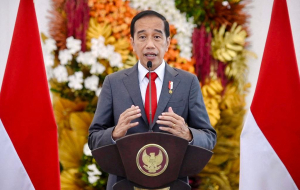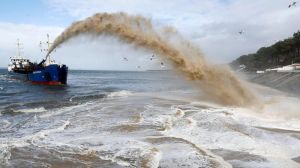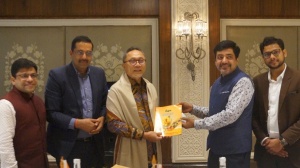Revised trade regulations on social commerce like TikTok shop expected to be completed this months
The Ministry of Trade is targeting the completion of the revision of Ministerial Regulation No. 50 of 2020 later this month. This revision will incorporate several rules related to social commerce, such as TikTok Shop.
Isy Karim, Director-General of Domestic Trade, announced that the draft revision of the policy is currently at the Ministry of State Secretariat. This means that the draft has been approved by Trade Minister Zulkifli Hasan and has undergone harmonization by the Ministry of Law and Human Rights.
"The draft has reached the President; we're waiting. After receiving approval from the President and his initiative, the Trade Minister will sign it again," said Isy on September 21, 2023.
Previously, Ministerial Regulation No. 50 of 2020 regulated licensing, advertising, supervision, and oversight of businesses engaged in electronic commerce or PPMSE.
The consideration for the revision of this regulation stems from cross-border trade practices through online markets and social media. Cross-border trade refers to direct trade between foreign sellers and domestic buyers.
Therefore, Isy explained that one of the revisions in Ministerial Regulation No. 50 of 2020 includes the nomenclature of social commerce within the country. This description is needed following TikTok's online sales practices.
"Hopefully, the revision of Ministerial Regulation No. 50 of 2020 will be completed this month; after all, September 2023 is not over yet," she said.
However, Isy emphasized that this policy does not yet address the separation of business entities between social media and online markets. In other words, the revision of this regulation still allows TikTok to have two business licenses, one as a social media platform and another as an online marketplace within the same business entity.
Furthermore, another consideration for the revision of Ministerial Regulation No. 50 of 2020 is to protect local traders and producers from imported goods. Imported products sold through online marketplaces tend to be much cheaper than local products.
Therefore, Isy stated that the revision would set a minimum transaction value for imported products in online markets, amounting to US$100 per unit. Additionally, the revision aims to protect conventional traders from online marketplaces.
Previously, Trade Minister Zulkifli Hasan explained four points to be revised in the regulation:
- The government treats e-commerce platforms the same as offline traders by imposing taxes and regulating their licenses.
- Setting a minimum price threshold of US$100 per unit for imported goods traded in local markets or marketplaces by foreign traders.
- Providing a clearer definition of social commerce as one form of PMSE providers.
- Additional requirements for foreign traders transacting on domestic marketplaces, including a commitment to comply with Indonesian National Standards (SNI) and technical requirements for the goods/services offered.
Tag
Already have an account? Sign In
-
Start reading
Freemium
-
Monthly Subscription
30% OFF$26.03
$37.19/MonthCancel anytime
This offer is open to all new subscribers!
Subscribe now -
Yearly Subscription
33% OFF$228.13
$340.5/YearCancel anytime
This offer is open to all new subscribers!
Subscribe now






